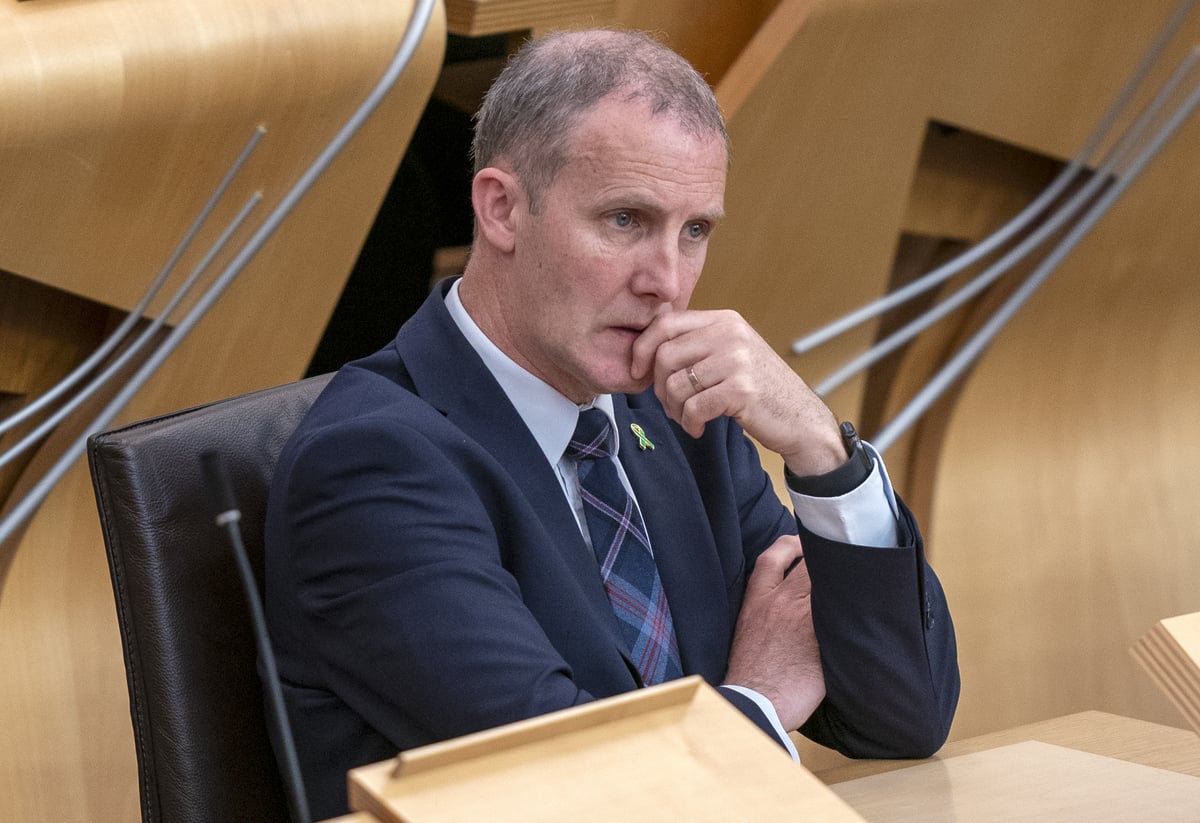By Contributor,Patrick Gleason,Robert Daemmrich Photography
Copyright forbes

Students, parents, and educators rallying for school choice in Texas, where lawmakers enacted an education savings account program earlier this year (Photo by Robert Daemmrich Photography Inc/Corbis via Getty Images)
Corbis via Getty Images
President Donald Trump has long championed school choice, calling it “the civil rights issue of our time.” President Trump and congressional Republicans recently expanded parental choice in education as part of the One Big Beautiful Bill Act, which includes a provision creating the nation’s first federal school choice program in the form of a tax credit scholarship program available to both private and public school students.
School choice is now serving as a key differentiator in the race to fill a U.S. House vacancy created by Congressman Mark Green’s (R) retirement in July. Early voting began this week for the October 7 primary in which Republicans and Democrats will select nominees for the December 2 special election to determine who serves out the remainder of Green’s two-year term representing Tennessee’s seventh congressional district. As the candidates running to represent this Republican-leaning district, which stretches from the Kentucky to the Alabama borders and includes downtown Nashville, jockey to voice their support for President Trump and his agenda, school choice has emerged as a point of contrast and contention in the Republican primary.
One of the top contenders heading into the October 7 GOP primary is Representative Lee Reeves (R-Franklin), a statehouse member who voted earlier this year to make Tennessee’s education savings account (ESA) program available to all children statewide. Among Reeves and the two other GOP state representatives vying to fill Congressman Green’s seat, Representative Jody Barrett (R-Dickson) and Representative Gino Bulso (R-Brentwood), Barrett is the only one who voted against the expansion of Tennessee’s ESA program that Governor Bill Lee (R-Tenn.) signed into law back in April. However, that hasn’t stopped Barrett from presenting himself to voters as a supporter of school choice.
Rep. Barrett has been a vocal opponent of Tennessee’s Trump-endorsed ESA program, claiming it is “designed to funnel taxpayer money through bloated bureaucracies.” Rep. Barrett also said that the state ESA program endorsed by President Trump “threatens to hollow out the public schools that remain the cultural heartbeat of our rural communities.”
Congressional Candidate Voices Support For School Choice After Voting Against It In The Statehouse
Now that he is a candidate for Congress, Barrett is telling voters that he supports school choice because, even though he opposes his state’s ESA program, he backs the new federal school program enacted as part of the One Big Beautiful Bill Act. In an open letter sent to Governor Lee in July, Rep. Barrett wrote that “President Trump’s new federal program is entirely different” than Tennessee’s ESA program. Barrett went on to claim that the new federal education tax credit program “is true school choice,” while the ESA program in Tennessee backed by President Trump is not.
MORE FOR YOU
Barrett’s letter to Lee asserted that the new federal program “gives Tennessee children a real shot at a better education,” but did not explain why that’s not also the case for Tennessee’s ESA program, which is far more generous than the new federal school choice program. Some of the top advocates for school choice in Tennessee are not buying Barrett’s argument.
“President Trump urged Jody Barrett to support school choice in Tennessee, but he chose to oppose it,” says Shaka Mitchell, senior fellow at the American Federation for Children (AFC). “His sudden shift on the issue is transparent and self-serving. President Trump, Governor Lee, and voters across Tennessee and the nation support school choice in all forms, which is more than Rep. Barrett can say. Primary voters know where he stands on the issue.”
“If it weren’t for Donald Trump, it’s unlikely Tennessee would have any ESA program today, let alone the statewide program with universal eligibility that we are now offering all Volunteer State parents,” says Rep. Reeves. “The reason the initial ESA pilot program even had the votes to pass is because of the support that President Trump expressed for ESAs going back to his first term, along with the pressure he applied to Tennessee lawmakers.”
Justin Owen, president and CEO of the Beacon Center of Tennessee, a Nashville-based think tank, sees a contradiction between Rep. Barrett’s recent rhetoric and his voting record.
“Let’s not rewrite history,” says Owen “Education Freedom Scholarships actually cut through one of the state’s largest bureaucracies to put power back in the hands of families. That’s why there were twice as many applicants than scholarships available this first year. The program was good enough for President Trump to endorse it. It’s good enough for the two-thirds of Tennesseans who support it, including 73% of Republican voters. And it’s good enough that tens of thousands of families want to be part of it.”
Opponent Of Universal School Choice Challenges Senate Leader Who Brought School Choice To North Carolina
The special election for Tennessee’s seventh congressional district isn’t the only upcoming primary election pitting Republicans who support President Trump’s school choice-expanding agenda against those who oppose it. Take North Carolina, where Senate President Pro Tempore Phil Berger (R), one of the leaders of the effort to bring school choice to North Carolina back in 2013 and make it universal in 2023, is now facing a primary opponent who opposes universal school choice.
Sam Page, a sheriff who is challenging Senator Berger in the March 2026 primary election, has not called for full repeal North Carolina’s Opportunity Scholarship Program, but he does want to change eligibility so that fewer children qualify.
Sam Page’s campaign website proposes “commonsense guardrails” to ensure the education voucher program “works for all families, not just the wealthy or lucky few.” North Carolina’s Opportunity Scholarship Program is already means tested, with the value of the voucher falling as household income rises. Page has yet to stipulate the household income level above which he believes children should no longer be eligible for even a reduced voucher.
“Unfortunately, Sam Page opposes the historic school choice reforms we’ve implemented,” Senator Berger wrote in a statement posted to X in July. “He’d side with Gov. Stein and education bureaucrats on school choice. I side with President Trump and North Carolina families.”
More than 42,000 children are now using North Carolina’s Opportunity Scholarship Program. Were Page to get his way on school choice, children across the state would be stripped of their education voucher. Under Senator Berger’s leadership, many states have followed North Carolina’s lead not only on school choice, but also tax and regulatory reform. However, North Carolina would go from policy reform leader to a school choice outlier under Sam Page’s proposal to limit eligibility for education vouchers. Should Page’s proposal be implemented, North Carolina would join Illinois as an outlier state in scaling back rather than expanding school choice
The rapid expansion of state programs that provide parents with private school choice is one of the most consequential policy trends of the past decade and a half. While many conservatives have been following school choice-related developments relatively closely, a recent episode of the New York Times’ podcast, The Daily, pondering “why so many parents are opting out of public school,” demonstrates how this trend is still a revelation to many.
“Over the past five years, we have doubled the number of students using some form of private vouchers and now more than one million American kids are using public dollars for some form of private education,” said Dana Goldstein, an education reporter for the New York Times. “This is starting to have a big impact on the public school system.”
While Goldstein focused on public school enrollment trends that have coincided with the expansion of school choice, she did not touch on existing research that suggests public schools tend to improve following the creation of a state school choice program. AFC’s Mitchell traveled from Tennessee to Washington, D.C. this past week speaking to lawmakers on Capitol Hill about that and other benefits of school choice. During a September 17 hearing of the U.S. House Committee on Oversight and Government Reform’s Subcommittee on Economic Growth, Energy Policy, and Regulatory Affairs, Mitchell presented testimony explaining “how school choice is not only a matter of education policy but also an issue of economic growth, civic health, and long-term national competitiveness.”
Most states now offer some form of school choice program — typically in the form of an education savings account or voucher — that helps parents to afford private school tuition and other education-related expenses. While some school choice programs limit eligibility based on income, North Carolina is among the 18 states that now offer a school choice program with universal eligibility. Just as the 2026 elections will affect the prospects for further expansion of school choice, where candidates stand on school choice is poised to affect the midterm elections. The GOP primary for Tennessee’s seventh congressional district will preview this dynamic on October 7.
Editorial StandardsReprints & Permissions



